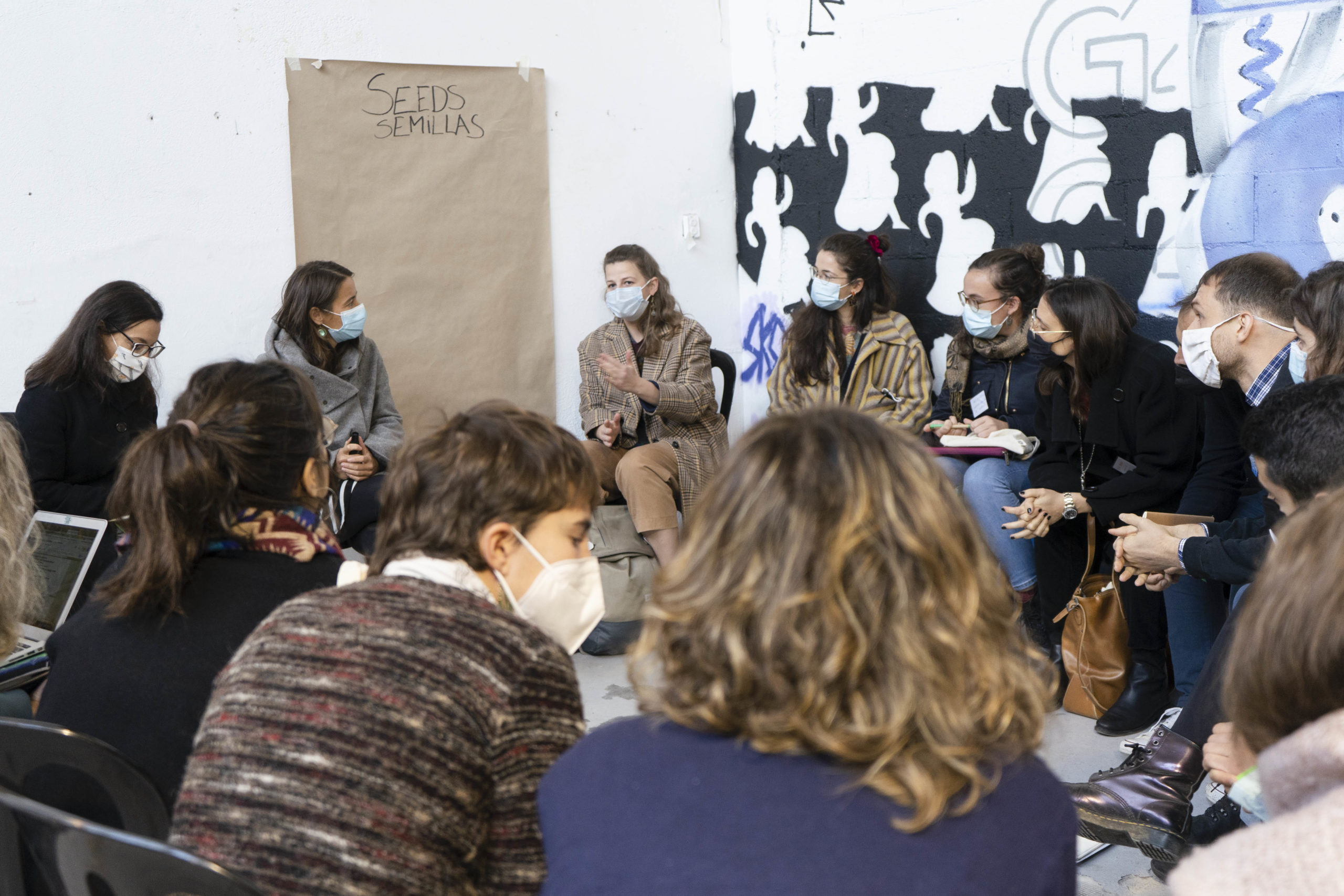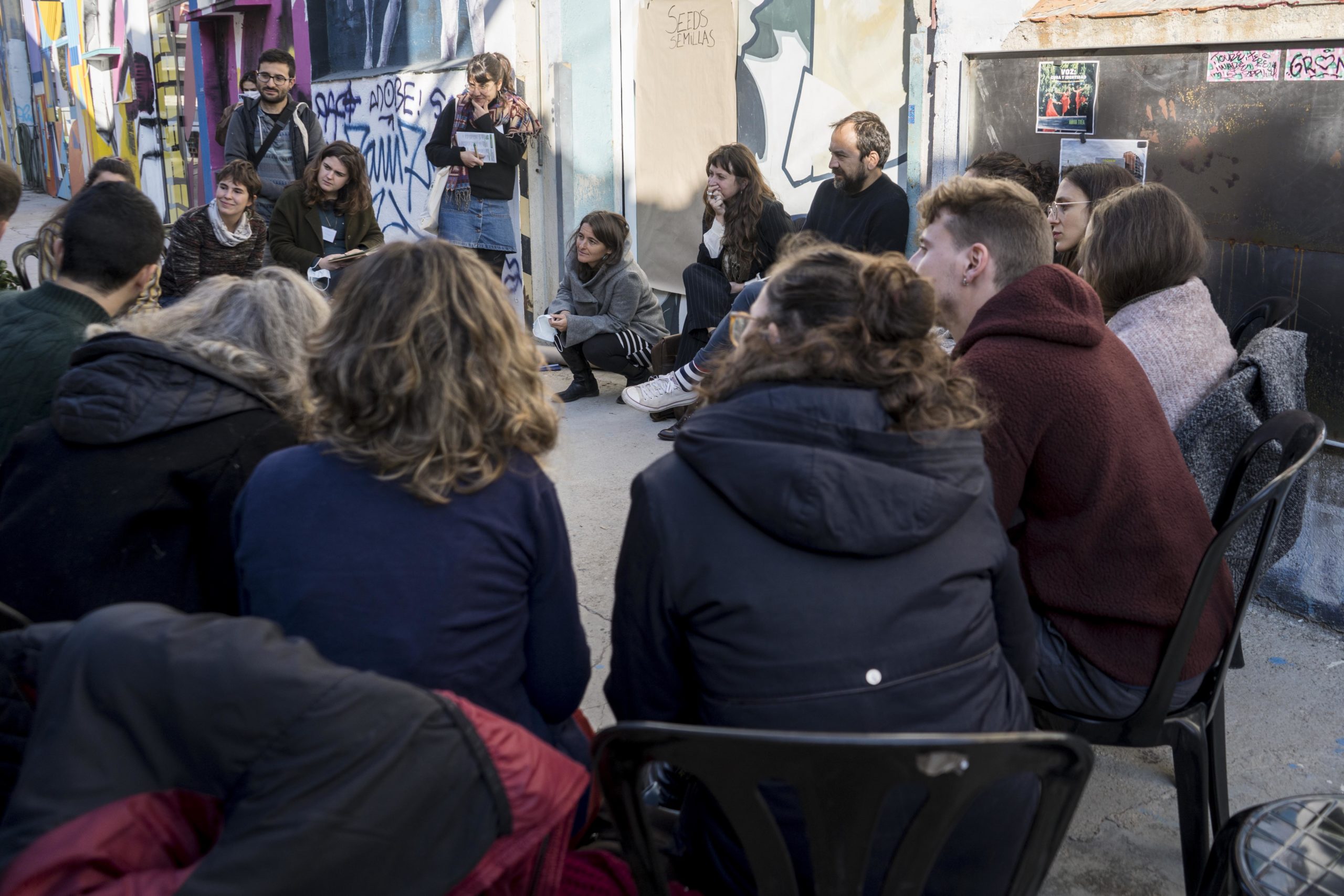It is increasingly clear that the era of industrial agriculture – based on the mass production of monoculture crops using chemical inputs – is coming to an end. Agriculture is a leading cause of climate change, and decades of chemical fertiliser is degrading soil across the world, making a land use transition essential for future food security. Agroecology – a land management system using bottom-up approaches to combine the traditional knowledge of farmers with scientific research to implement regenerative agricultural practices, whilst incorporating the rights of women, young people, and indigenous groups – is emerging as an alternative. However, plenty work is yet to be done to make this time-old practice technically and economically feasible for farmers of all scales across the world.
From 17-19 November 2021, Agroecology Europe held a three-day hybrid event: Agroecology Forum: Agroecology to Regenerate our Food Systems and Communities and Enhance Biodiversity, bringing together experts and practitioners across the world to share experiences, knowledge and ideas through panel discussions, workshops, and field visits. Day one was held online, day two in the cultural centre of Nau Bostik in Barcelona (Spain), and on day three the organisers led field visits to local associations and projects that promote agroecology in and around Barcelona.
Day one – online and open to all – began with an introductory session with speakers from Agroecology Europe, the European Commission, FAO, la Red de Ciudades por la Agroecología (Network of Cities for Agroecology), Barcelona City Council, IPBES-Food, la Via Campesina, and others. This introductory overview of the potential of agroecology to address the interconnected environmental and social challenges we face was followed by two in-depth sessions on the contributions of agroecology to climate change action, and how the EU’s Common Agricultural Policy (CAP) can be reformed to encourage the adoption of agroecology. Online networking sessions were held in between the sessions, and the afternoon brought together experts to discuss the transition towards agroecology in the post-COVID era, and the role of formal and informal education in mainstreaming agroecology, with speakers from the USA, Denmark, the UK, Italy, Hungary, and Germany.
Day two marked one of the first in-person conferences in the agroecology community since the outbreak of COVID-19, and was held in the vibrant cultural centre of Nau Bostik – a place renowned in the city for its alternative events, conferences, shows, and exhibitions. The attendees were predominantly researchers, students, representatives from NGOs and activist groups, as well as leaders from the sustainability teams of companies across Europe. In the first session of the day the AGROMIX Communications Manager Patricia Carbonell presented the project, focusing on the AGROMIX pilot site of Coop Manciano in Tuscany, Italy. Speakers and workshop leaders came from a variety of backgrounds, including university research groups, NGOs, online farmers’ forums, and activism groups from across Europe, Africa, and the Americas. Through both presentations and interactive discussions, participants gathered insights on developing local policy to promote healthy diets, linking producers with consumers, increasing social justice through the upscaling of agroecology, agroecology as a way to ensure gender equality in land management, the role of science in sustainable agriculture, as well as open discussions on local challenges such as the environmental impacts of the expansion of the Barcelona El Prat airport, and how local administrations can use agroecology to adapt to the impacts of the expansion.

Participants discuss the key challenges and ways to connect farmers with consumers.
Ensuring variety and dynamism in the Forum’s sessions, on the third and final day participants divided into groups for field trips to ‘Alimentem Collserola!’ – an initiative led by the five municipalities that share the 8,000-hectare Collserola park; ‘Alterbanc’ – an alternative food bank based on the principles of agroecology; ‘Fundació Espigoladors’ – an initiative that organises gleaning sessions to recover ‘imperfect’ surplus produce from farms across Catalonia, and ‘Biomarket’ – the first organic wholesale market in Mercabarna (Barcelona’s main food distribution estate).
The large concentration of parallel events and the inputs from experts from across the world brought attendees enhanced knowledge, food for thought, and awareness of the challenges still to be overcome, if we are to ensure that in the future, the majority of our food is produced using agroecology practices. Key conclusions include that local, national and regional policies must be created to incentivise farmers to transition towards these methods, and that more field research must be carried out and successfully communicated to demonstrate that if correctly implemented, agroecological practices can increase farmers’ yield, and increase their resilience to both climatic and economic variability.

Attendees get to know each other and share their ideas and inspiration in between the event's sessions.